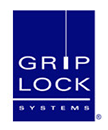Industry News
New Photometry Lab At The Lighting Research Center
April 04, 2013
The Lighting Research Center (LRC) at Rensselaer recently unveiled its new photometry laboratory with a ribbon cutting at its 25th anniversary celebration, March 20. The new laboratory is supported with funding from the New York State Energy Research and Development Authority (NYSERDA). Irvin “Jack” White, the past NYSERDA president who issued the 1987 request for proposals that established the LRC, cut the ribbon alongside LRC Director Mark Rea and current NYSERDA President and CEO Francis J. Murray, Jr.
“This new well equipped laboratory expands the LRC’s capabilities in lighting measurement and lighting product evaluation, in addition to providing tools to further the LRC’s research into new lighting technologies and new metrics,” said LRC Professor and Director of Research Nadarajah Narendran. “Our dedicated staff here at the LRC, especially Andy Bierman, Yiting Zhu, and Martin Overington, worked countless hours setting up the equipment, which is highly complex. Thanks to their hard work, the lab is now fully operational.”
 The laboratory includes an imaging type goniophotometer system, mirror type goniophotometer system, illuminance meters, luminance meter and color analyzer, spectrometers, National Institute of Standards and Technology (NIST) calibrated lamp standards, a large thermally controlled integrating sphere system, and thermal test chambers. The new equipment allows LRC researchers to conduct photometric measurements on a wider range of lighting products and systems, including luminaires. In addition, the new laboratory expands the LRC’s training and education capabilities at its Photometry Institute, a three-day interactive course designed to build the knowledge and skills to establish and conduct photometric testing and evaluation of lighting products and systems. The hands-on course is geared toward engineers, technicians, managers, testing personnel, and product designers who want to learn more about photometric, colorimetric, and related evaluation of lighting products and prototypes, including the latest requirements for testing light-emitting diode (LED) and traditional lighting products—for example, understanding testing requirements for labeling programs such as ENERGY STAR® and Lighting Facts. LRC researchers will also be able to assist lighting manufacturers with a wider range of lighting measurements and evaluation services. The LRC is recognized throughout the world for objective, independent, third party testing of lighting products, and has the only university lighting laboratory accredited by the National Voluntary Laboratory Accreditation Program (NVLAP Lab Code: 200480-0).
The laboratory includes an imaging type goniophotometer system, mirror type goniophotometer system, illuminance meters, luminance meter and color analyzer, spectrometers, National Institute of Standards and Technology (NIST) calibrated lamp standards, a large thermally controlled integrating sphere system, and thermal test chambers. The new equipment allows LRC researchers to conduct photometric measurements on a wider range of lighting products and systems, including luminaires. In addition, the new laboratory expands the LRC’s training and education capabilities at its Photometry Institute, a three-day interactive course designed to build the knowledge and skills to establish and conduct photometric testing and evaluation of lighting products and systems. The hands-on course is geared toward engineers, technicians, managers, testing personnel, and product designers who want to learn more about photometric, colorimetric, and related evaluation of lighting products and prototypes, including the latest requirements for testing light-emitting diode (LED) and traditional lighting products—for example, understanding testing requirements for labeling programs such as ENERGY STAR® and Lighting Facts. LRC researchers will also be able to assist lighting manufacturers with a wider range of lighting measurements and evaluation services. The LRC is recognized throughout the world for objective, independent, third party testing of lighting products, and has the only university lighting laboratory accredited by the National Voluntary Laboratory Accreditation Program (NVLAP Lab Code: 200480-0).
About the Lighting Research Center
The Lighting Research Center (LRC) is part of Rensselaer Polytechnic Institute of Troy, N.Y., and is the leading university-based research center devoted to lighting. The LRC offers the world's premier graduate education in lighting, including one- and two-year master's programs and a Ph.D. program. Since 1988 the LRC has built an international reputation as a reliable source for objective information about lighting technologies, applications, and products. The LRC also provides training programs for government agencies, utilities, contractors, lighting designers, and other lighting professionals. Visit www.lrc.rpi.edu.
About Rensselaer Polytechnic Institute
Rensselaer Polytechnic Institute, founded in 1824, is the nation's oldest technological university. The university offers bachelor's, master's, and doctoral degrees in engineering, the sciences, information technology, architecture, management, and the humanities and social sciences. Institute programs serve undergraduates, graduate students, and working professionals around the world. Rensselaer faculty are known for pre-eminence in research conducted in a wide range of fields, with particular emphasis in biotechnology, nanotechnology, information technology, and the media arts and technology. The Institute is well known for its success in the transfer of technology from the laboratory to the marketplace so that new discoveries and inventions benefit human life, protect the environment, and strengthen economic development.









































